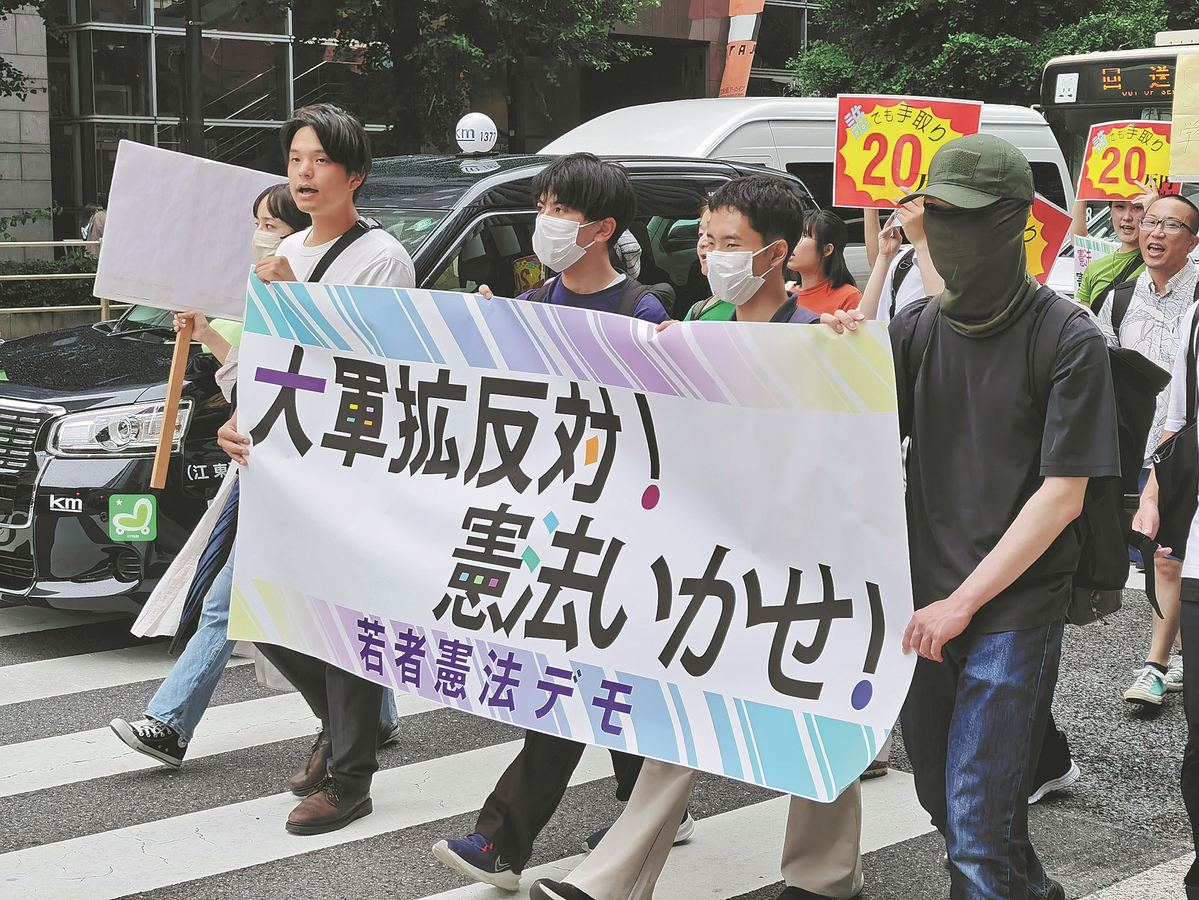Kishida push for change to constitution opposed
Japanese PM's move seen to shore up support within party to secure reelection


Despite strong opposition at home and abroad, Japanese Prime Minister Fumio Kishida has proposed to accelerate the process of amending Japan's pacifist constitution to secure his reelection in the Liberal Democratic Party presidential election in September.
The party polls will be held amid a sharp decline in Kishida's approval ratings due to political and financial scandals. He has determined that he needs the support of the conservative factions within the party, said Kazuyuki Hamada, an international political economist and former parliamentary vice-minister for foreign affairs of Japan.
Moreover, Kishida has long been passionate about attaining constitutional amendment during his term and sees it as an achievement that will leave his mark in history, said Hamada.
To initiate a constitutional amendment, a two-thirds majority approval in the Diet, the national legislature of Japan, is required. Currently, this condition is met, but there is a high possibility that the seats of the Liberal Democratic Party, or LDP, may decrease in the future. Thus, there is a strategic intention to push for amendments while the LDP still holds a majority in the Diet, Hamada said.
Miho Aoi, professor of constitutional law at Gakushuin University, said perhaps Kishida's political resources are limited, and he is trying to retain his support base by continuing the discussion on constitutional revision, which many of his supporters desire.
"I understand this as a message directed more toward specific people rather than toward society as a whole," said Aoi after a seminar in Tokyo on Monday, which discussed the unconstitutionality of Japan's security legislation passed in 2015.
Currently, in the House of Representatives' Commission on the Constitution, the LDP, its junior coalition partner Komeito, the Japan Innovation Party, the Democratic Party for the People, and independents are advocating for constitutional amendment, including the revision of Article 9, which renounces Japan's right to engage in war or to resort to military force to resolve international conflicts.
The Constitutional Democratic Party of Japan, the Japanese Communist Party, the Social Democratic Party and Reiwa Shinsengumi oppose Article 9's revision.
Next election
As such, in the next House of Representatives election, which is expected to be held within the year, it is hoped that these four political parties will increase their seats to prevent the detrimental revision of the constitution, said Takakage Fujita, secretary-general of the Association for Inheriting and Propagating the Murayama Statement, a Japanese civic group dedicated to upholding the 1995 Murayama Statement that admits Japan's wartime mistakes.
Fujita noted that Japan's pacifist constitution is a national commitment to the world, deeply reflecting on the fact that Japan, in its past wars of aggression, took the lives of many people in Asia, causing immense damage and suffering. It declares that Japan will never again instigate wars of aggression.
"If Japan's constitution is altered in a detrimental way, Japan's military power will further increase significantly. This will provoke tensions in Asia, leading to the destruction of regional peace, security and stability," said Fujita.
Hamada expressed similar views, predicting that if the constitution is amended, tensions in the Asia-Pacific region will inevitably rise, and "Japan will inevitably be more deeply integrated into US military strategy, raising concerns that Japan's subordination to the US will accelerate even further".
Many people seriously believe that conflicts cannot be resolved through military force, said Aoi from Gakushuin University.
Nearly 300 young people from all over Japan staged a protest march in Tokyo on Sunday, opposing the government's massive military buildup and attempts to revise the constitution.
Ryuhei Nishikawa, chairperson of the Democratic Youth League of Japan, said: "Changing Article 9 of the constitution is something that must not happen. It would undoubtedly pose a threat to East Asian countries."































